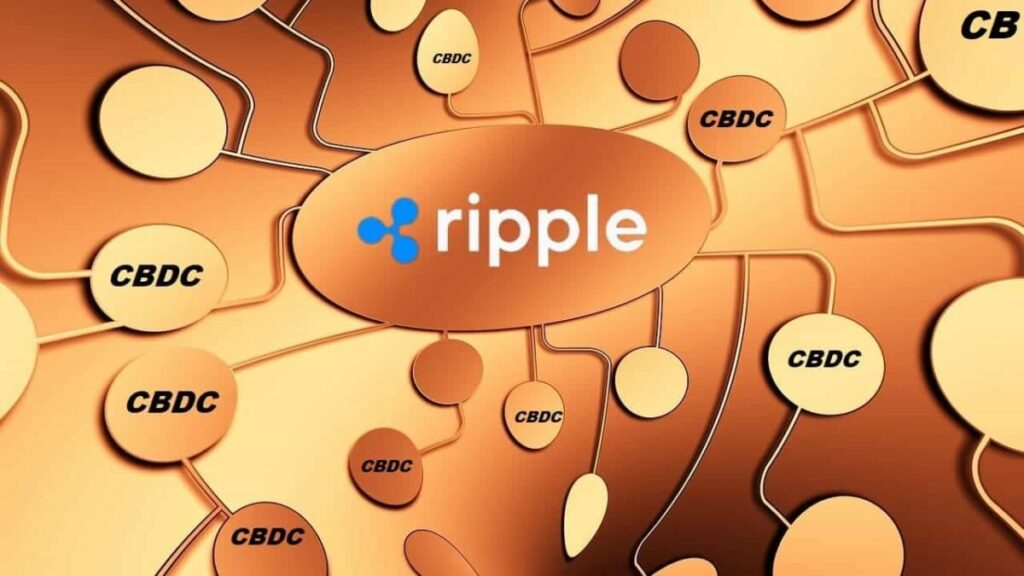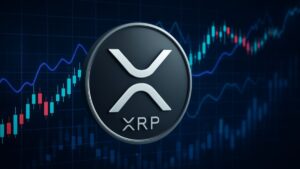Ripple, the blockchain-based digital payment network behind XRP, has rolled out a new crypto platform that enables central banks, governments, and financial institutions to issue their own central bank digital currencies (CBDC).
Good Times For Ripple
Ripple seems to be riding the wave. From clinching small victories in its legal battle against the United States Securities and Exchange Commission (SEC) to introducing new initiatives, Ripple has been in the spotlight over the recent past.
Recently, Ripple scored a significant win against the SEC after a U.S. federal judge denied a motion filed by the SEC to seal internal documents related to a speech given by the SEC’s former director William Hinman on whether cryptocurrencies are securities.
Another win for transparency! Unredacted Hinman emails to be publicly available soon – stay tuned as the lawyers work through the mechanics to make that happen. https://t.co/o6puPypRHd https://t.co/qmaLVeQaP8
— Brad Garlinghouse (@bgarlinghouse) May 16, 2023
The ruling comes approximately five months after the SEC was ordered to hand over the Hinman documents to Ripple. Despite the ongoing legal drama, Ripple has been at the forefront of introducing new initiatives to bolster the XRP ecosystem.
On April 23, the XRP maker announced its partnerships with several innovative fintech companies, universities, NGOs, and social entrepreneurs in order to transform a global financial system enabling a sustainable crypto solution and helping entrepreneurs to build more innovative blockchain research and technical projects.
What Is The New CBDC Platform?
In the latest development, Ripple unveiled its new offering, “Ripple CBDC Platform” to provide central banks, governments, and financial institutions with a seamless solution for issuing, managing, and distributing CBDCs and stablecoins. The new CBDC Platform leverages the power of the same blockchain technology used on the XRP Ledger, allowing users to manage and customize the entire life cycle of fiat-based central bank digital currency.
With more than 90% of countries exploring and developing #CBDCs, we’re introducing the Ripple CBDC Platform, a frictionless solution for central banks, governments, and financial institutions to issue their own central bank digital currency.https://t.co/2bKkAJbx3F
— Ripple (@Ripple) May 19, 2023
According to the official press release, the new platform aims to grant the government and financial institutions to oversee and customize every aspect of the CBDC’s life cycle, including its creation, distribution, redemption, and removal from circulation.
In addition, financial institutions can manage and participate in inter-institutional settlement and distribution functions. Meanwhile, retail and corporate end-users will be able to hold their digital currencies securely and pay and receive payment for goods and services.
James Wallis, Ripple’s Vice President of Central Bank Engagements & CBDCs explained the Ripple CBDC platform will help solve problems for many central banks and governments who are devising plans and developing a technology strategy for CBDC Implementations. He added,
“The innovative capabilities of the platform will help enable instant settlement of both domestic and cross-border payments, reduce risk, and improve the user experience of quickly sending and receiving digital currency on either side of a transaction.”
CBDCs Could Destabilize Financial System
Despite surging CBDC projects all over the globe, market experts have long warned about the looming concerns CBDCs pose to financial privacy and economic freedom. This digital currency could potentially pose risks to privacy, increase the responsibilities of the central bank, and may also lead to currency substitution through cross-border transactions.
For instance, a CBDC would provide a direct connection between a country’s central bank and its citizen’s financial activities, giving the banks a detailed picture of every financial transaction.
As per Cato Institute, a Washington-based libertarian think tank, a centrally governed digital currency could undermine both the foundation and future of financial markets by reducing credit availability, disintermediating banks, and strengthening government control over payment networks while endangering economic freedom and privacy. Several prominent organizations have fervently criticized the introduction of CBDCs. Previously, the World Bank had stated,
“The introduction of CBDC could disrupt the existing financial intermediation structure. In addition, depending on design and country context, CBDC could pose risks to financial stability, financial integrity, data protection and privacy, and cyber resilience.”
Moreover, CBDCs would also impede the effectiveness of “decentralized” cryptocurrencies, including Bitcoin (BTC) and Ethereum (ETH) among many others. Unlike these decentralized digital tokens, that foster strong decentralization and autonomy, CBDCs will eventually put individual financial autonomy at risk, creating a breeding ground for abuse and discrimination.
Ripple Expands Its International Footprint
The development comes after Ripple CEO Brad Garlinghouse revealed that the company plans to focus most of its hiring efforts outside of the U.S. in the near future. Explaining how regulatory confusion regarding U.S. cryptocurrency regulations has affected Ripple’s operations.
He stated the company has found it necessary to divert a considerable portion of its resources outside of the United States specifying, “95 percent of our customers are non-U.S, and this year most of our hiring will be non-U.S for some of those exact same reasons.”
Today, we are proud to announce Ripple has acquired @metaco_sa, becoming the sole shareholder of the Swiss-based provider of digital asset custody and tokenization technology.
Learn more: https://t.co/GrI3u13iDT
— Ripple (@Ripple) May 17, 2023
Earlier this week, Ripple acquired Metaco, a Swiss firm that holds digital assets securely on behalf of clients, in a bid to expand its international footprint and broaden its range of services. As per reports, the blockchain firm invested nearly $250 million of cash off its own balance sheet to fund the acquisition. Commenting on the deal, Garlinghouse said,
“At a time when others are closing their doors or facing layoffs, I think it’s a really important signal for the industry, it’s also a signal that ripple’s in a strong position — we’re going to play offense”












